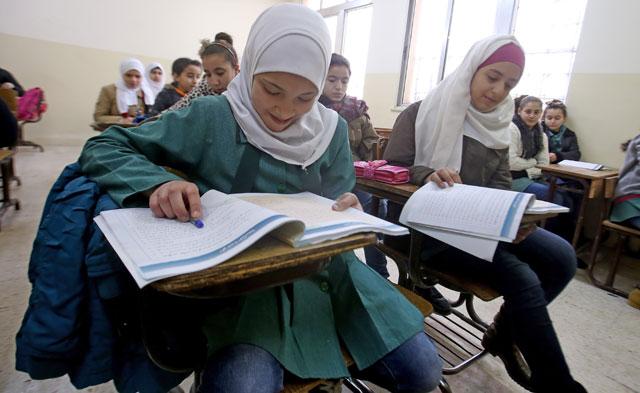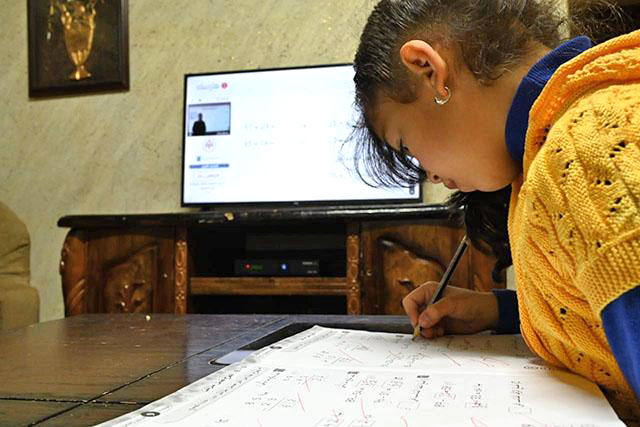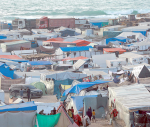You are here
16% of students in Jordan lack Internet access — report
By Bahaa Al Deen Al Nawas - Jun 08,2020 - Last updated at Jun 08,2020
AMMAN — Over 16 per cent of students in Jordan lack Internet access, which is 16 percentage points below the Organisation for Economic Cooperation and Development (OECD) average, according to a World Bank blog post issued on May 21.
The blog post, titled "COVID-19 and digital learning preparedness in Jordan" and written by Mohammed Audah, Maja Capek and Aishwarya Patil, said that while many children have Internet access in Jordan, universal access has not yet been achieved.
Moreover, the report noted that one-third of students do not have a computer that can be used for schoolwork, a figure that falls 25 percentage points below the OECD benchmark.
"Looking in more detail, this digital gap is found mostly in low-income households: Less than 30 per cent of students from the lowest economic status groups have a computer for schoolwork and only about 50 per cent can access the Internet," read the post.
The figures are cited from OECD's Programme for International Student Assessment (PISA) 2018, conducted on a nationally representative sample of 15-year-old students, which the writers used to draw up an idea of Jordan’s preparedness for digital learning.
The preparedness was evaluated based on three key dimensions of the “digital gap”, which are: Access to digital devices and the Internet, use of online resources and school and teacher preparedness to leverage digital solutions for learning.
The report said that Internet access is “necessary but inadequate” to create an effective distance-learning environment, noting that "a careful assessment of the skills covered by online resources is needed and an understanding of how best to transmit these skills to students".
The COVID-19 outbreak has forced school closures around the world, affecting 103 million students across the Middle East and North Africa, according to the post.
Schools play a “critical role” in monitoring and promoting student engagement with digital learning materials, the post said, noting that PISA results reveal that most schools in Jordan “are not well prepared to continue classes virtually and provide individualised student support”.
Moreover, the report cited school principals as saying that "only 43 per cent of 15-year-old students in Jordan attend schools with an effective online learning support platform".
Commenting on the report on social media, Ahmad Rashid suggested that telecommunication companies should provide the students mentioned on the blog with free Internet access.
Also commenting, Omaer Ababneh wrote that his children “did not benefit from remote education” due to a lack of Internet access, alleging that many parents with Internet access took the exams instead of their children.
"Education is a right guaranteed by all laws on earth, and my children have the right to learn at a school and inside a classroom," Ababneh added.
To respond to the lack of Internet access and devices, “ILearn”, an initiative founded in 2012, launched the “My Education” campaign at the end of April to distribute devices; mainly laptops and tablets, to help families provide all of their children with the education they need.
At the time, Amal Al Salem, one of the people contacted by the initiative, said that she has several children and they all use one phone, with not enough Internet data due to a difficult financial situation.
Husni, a father of four, also told the initiative at the time that all of his children, including one in Tawjihi, use his old smart phone and Internet, but only when he is at home.
Related Articles
AMMAN — 2018 saw Jordan improve in the Organisation for Economic Cooperation and Development’s (OECD) Programme for International Student As
AMMAN — Although Jordan’s results in the Programme for International Student Assessment (PISA) showed a nine-point increase in reading, this
AMMAN — Jordan is among regional nations leading the charge in employing multi-modal approaches and building innovative partnerships “overni


















